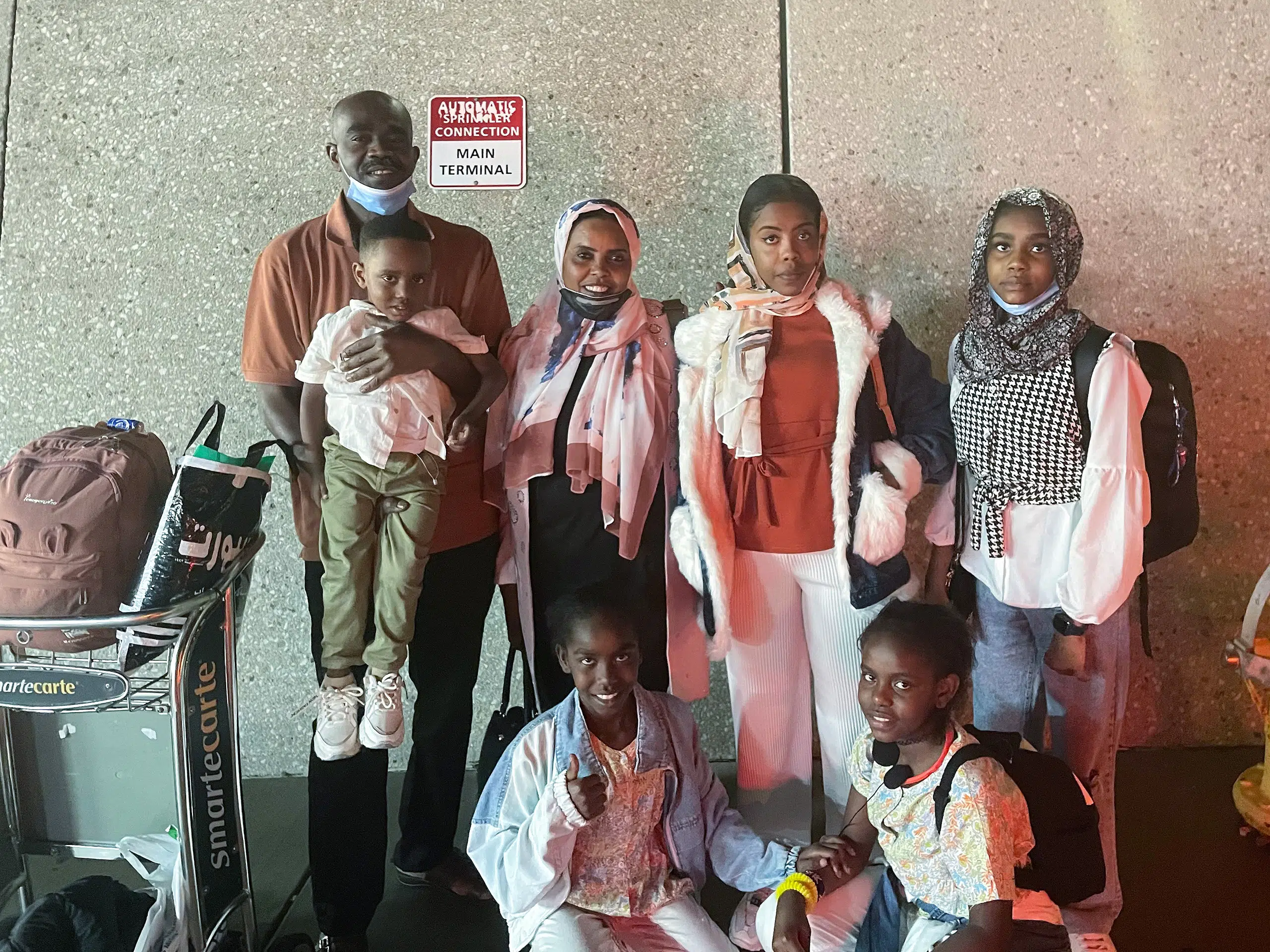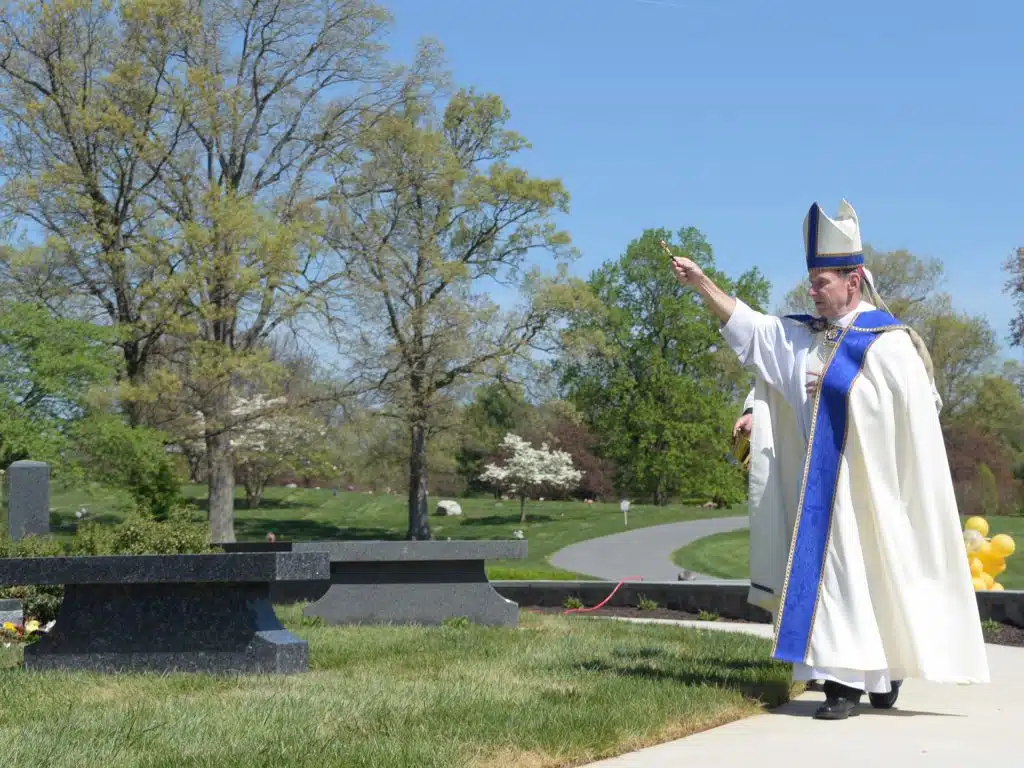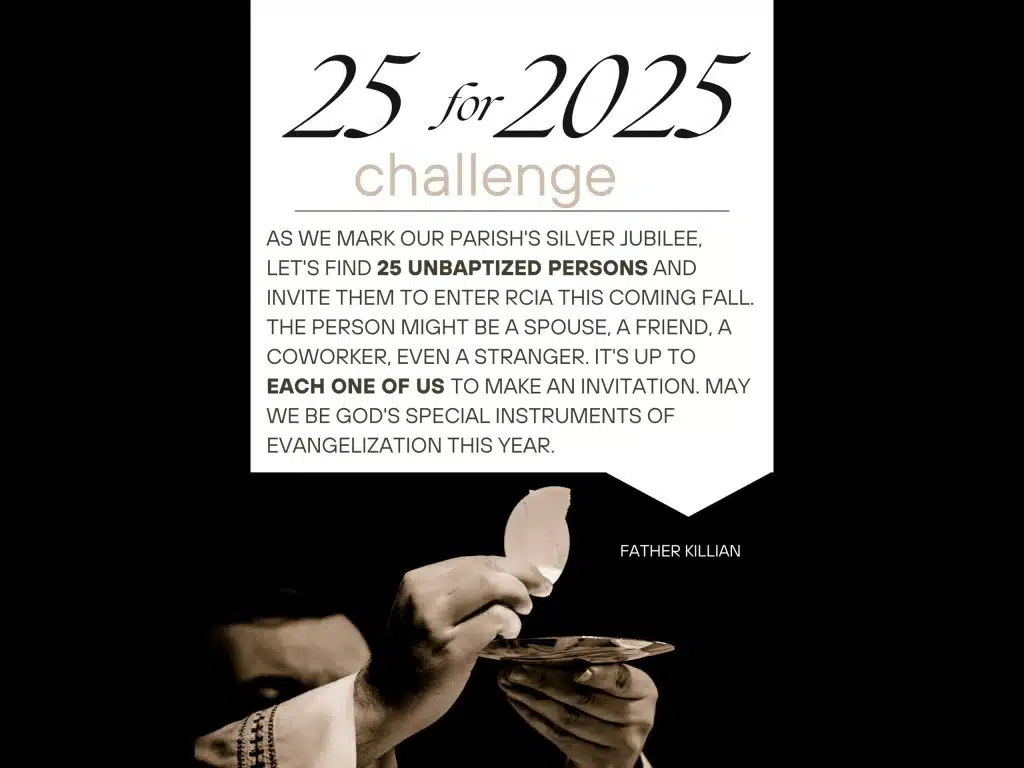The stream of refugees and other immigrants into Northern Virginia in the past year has been non-stop — but the staff of diocesan Catholic Charities Migration and Refugee Services has kept up with the unprecedented need.
The resettlement ministry says it has welcomed more than 1,000 newcomers since October. It has restructured and almost doubled the size of its staff from 33 to 62, even opening a new office in Woodbridge to accommodate the influx.
“The response of the community has been overwhelming,” said Belayneh Loppisso, director of diocesan Catholic Charities Migration and Refugee Services, one of three resettlement agencies in Northern Virginia. He said parishes and donors from all over the diocese have generously responded to Amazon wish lists and other collections, providing food, furniture and household necessities. “Our warehouse was full and we had a conference room full of donations.”
In addition to its regular immigration streams, the agency last August began resettling hundreds of Afghan families who fled to the United States for safety after the fall of Kabul. Many of these refugees had assisted the U.S. government’s mission in Afghanistan. In October, the government granted humanitarian emergency status to 78,000 additional refugees.
Diocesan Catholic Charities has been welcoming newcomers from around the world since 1975, but Loppisso said this year’s numbers have far surpassed the previous peak of about 700 to 800 individuals in 2017, before government policy curtailed immigration. The number of immigrants in 2020 was about 400 he said, so staffing had been down before numbers started ramping up again.
Since Oct. 1, the beginning of the current fiscal year, Loppisso said his staff has resettled more than 850 Afghan parolees — those granted emergency humanitarian status — in addition to about 150 Afghans holding Special Immigrant Visas, most of whom assisted the U.S. government. There also have been about 55 refugees and immigrants from other countries, including El Salvador, Honduras, Guatemala, Nicaragua, Sudan, Ethiopia and Congo, under the “traditional” refugee resettlement program through the U.S. State Department.
Loppisso said one of the most recent arrivals to the diocese is a family of Sudanese refugees displaced ago by Sudan’s civil war. They arrived at Dulles International Airport in June, after staying in Egypt for the past 20 years while awaiting approval to join relatives in Fairfax County.
In addition, Loppisso said a few refugees from Ukraine also have started to arrive in Northern Virginia after the government announced plans in March to welcome up to 100,000 Ukrainians and others fleeing Russian attacks. Most of those arriving in Virginia are sponsored by family members who live here and petitioned to have displaced relatives join them. “When they get here we are authorized to provide services,” Loppisso said.
With federal funds and local donations, the agency provides a wide range of migrant services, including employment and housing assistance, mental health, youth and senior services, English and other education classes, including technology, student programs and cultural integration for families. The new office in Woodbridge specifically serves clients with humanitarian parolee status.
Although many of the immigrants have professional skills, they often must take entry-level jobs to begin earning an income when they first arrive. But families are grateful simply to have left the dangers back home and arrived safely in this country. “Safety is the first priority, and they really are thankful for that,” Loppisso said.
He added that case managers and other staff take “a holistic approach” to helping families acclimate to their new culture, and five different staff members might work with one family in the first 90 days, helping them with housing, jobs, school registration, health requirements and other needs.
Case managers work with between 10 and 15 families at a time, “and it is intensive,” Loppisso said. “Some families don’t have any other contacts here.” He said many of the new staff members are Afghan women, who can assist families in their own language.
Jessica Estrada, director of Newcomer Services for diocesan Catholic Charities, noted that many of the agency’s staff “know all too well the journey of migration, as they were once newcomers themselves.
“They can speak to why this is important not only for our clients, but also for our diocesan family. ‘Welcoming the stranger’ is a longstanding, biblical tradition of the church,” she said, which “not only enriches our own faith journey but also provides new insight into the ways our world is interconnected.”
Find out more
ccda.net/need-help/immigrants-and-refugees/migration-and-refugee-services



